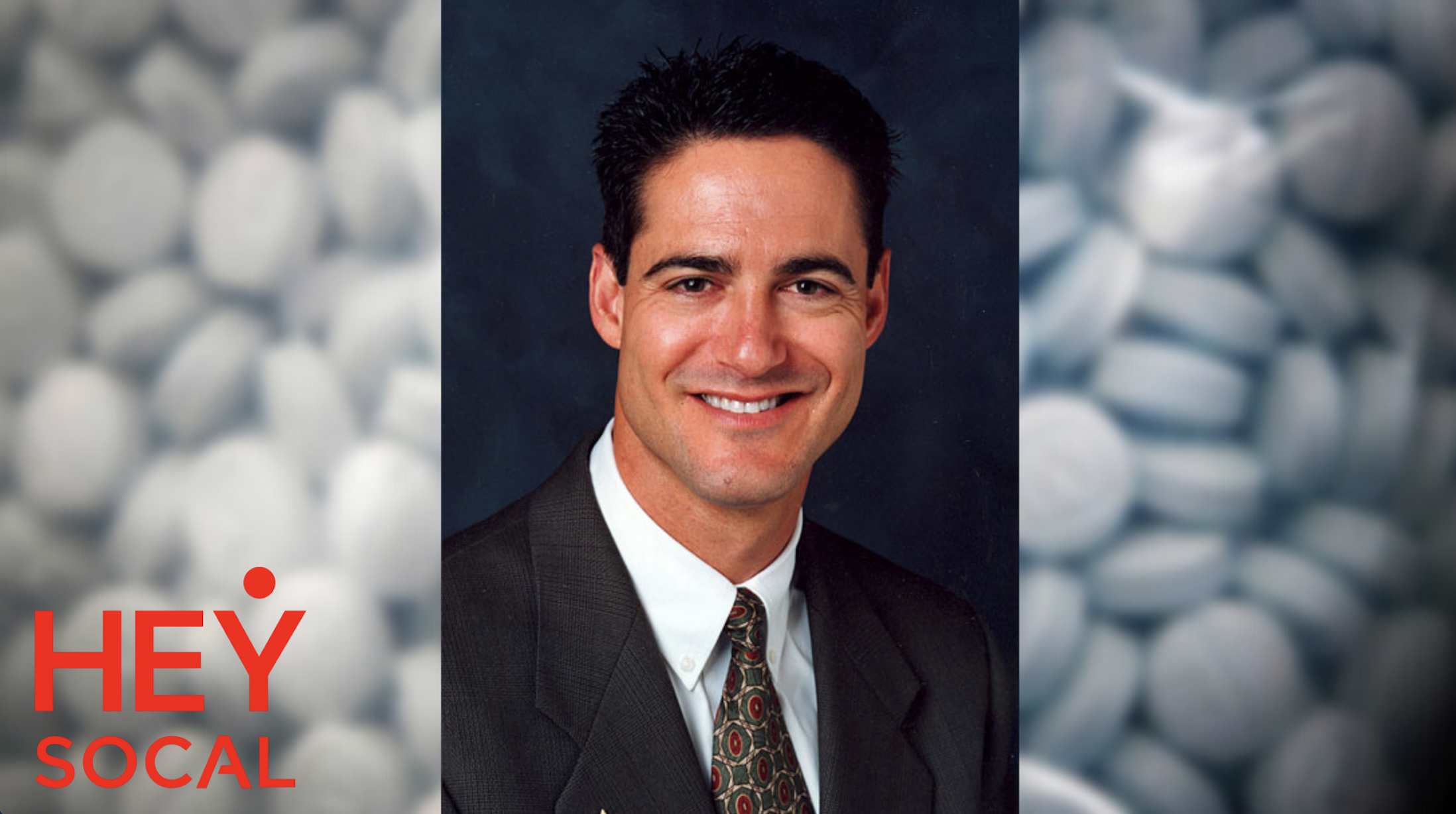Orange County District Attorney Todd Spitzer announced Tuesday that his office will now pursue murder charges against convicted drug dealers who peddle dope that leads to a death, an effort also being undertaken in Riverside County.
Spitzer said the practice will work much like the so-called Watson Waiver, which permits second-degree murder charges against convicted drunk drivers involved in a deadly crash. The major difference, however, is the Watson Waiver has been approved by state lawmakers and is an established legal precedent.
An effort to pass a similar law against convicted drug dealers peddling fentanyl earlier this year failed to get out of committee in Sacramento.
Spitzer was joined in the announcement by Riverside County District Attorney Mike Hestrin, who said his office has already filed seven such cases and has three more in the pipeline.
Several parents whose children died as a result of taking lethal doses of fentanyl also joined Tuesday’s news conference, calling on parents and educators to relay the message of how deadly the drug has become, especially in the case of counterfeits that are being illegally manufactured and trafficked into the country.
“We have seen a 1,000% increase over the last five years as a result of overdoses and deaths by fentanyl,” Spitzer said. “Statewide, fentanyl deaths are up 1,513%. Rich, poor, Black, white, Brown, men, women, children, hardcore drug users and first-time drug users who are exposed have died.”
Spitzer said there were 450 deaths pending toxicology tests to determine the cause in the Orange County coroner’s office.
“Those are all going to be related to fentanyl,” he said.
Spitzer said the drug is “50 times more potent than morphine,” adding it is “cheap, it’s easy to get.” Because so little is needed for a high, it is also easier to conceal, he added.
Spitzer said he was working with law enforcement officials across the county to also give drug dealers “advisements” that if they are busted again for drugs and someone dies they could be on the hook under the legal theory of implied malice murder.
He brushed aside the fact that state lawmakers rejected the concept. The state law would have allowed for voluntary manslaughter or second-degree murder charges for convicted fentanyl dealers.
“If they don’t want to be aggressive about all these young people dying then shame on the state Legislature,” Spitzer said. “Because the state Legislature has an epidemic. They understand a pandemic, but they certainly need to understand they have an epidemic when it comes to fentanyl.”
We’re going to be arguing, trying to convince judges and juries. That’s just what we do, he added. “We fight for victims. We try to stop future crimes from happening. We try to save lives. This is pathetic. This is horrible. This is beyond imagination.”
Hestrin said fentanyl has been a game-changer in the drug trade.
“Fentanyl has changed the entire nature of drug use and drug dealing,” Hestrin said. “In Riverside County in 2016 we had two fentanyl-related deaths. This year we’re on pace to have 500 to 600 fentanyl-related deaths. The deaths are doubling every year.”
Matt Capelouto’s 20-year-old daughter died after ingesting fentanyl two days before Christmas 2019. He was behind the effort to get state lawmakers to approve Alexandra’s Law.
Capelouto said his efforts to push for the law is “not grounded in anger or revenge.”
He said his daughter bought what she thought was oxycodone from a drug dealer she contacted through Snapchat.
“The pills she took were fake and filled with deadly amounts of fentanyl,” Capelouto said. “Initially, her death was listed as accidental overdose, but she was poisoned. The word overdose does not accurately describe this crime. They make a conscious decision to sell a fake pill to a human being without regard for the repercussions.”
Perla Mendoza said her son was suffering from depression and having trouble with insomnia, and was prescribed sleep medication. But when a doctor would not refill a prescription because of concerns about addiction, her son contacted someone on Snapchat, who delivered a drug to him.
“One pill killed my son,” Mendoza said. “I don’t want this to happen to anyone else in our community.”
She wanted to warn parents about the dangers of drugs.
“Parents, this could happen to any of us,” she said. “My son was a good boy. He had a dream of helping others. He was funny, a loving son. My only son. He was born on Christmas Eve, my Christmas gift… No one is immune to this nasty poisoning.”
Another mom, Amy Neville, said last year her 14-year-old son died after consuming a “single, counterfeit pill containing fentanyl.”
“Unfortunately he had been experimenting with cannabis,” and he got the drug from a dealer who was connected to two other deaths in Orange County, she said.
“I believe to drive down the deaths we need to drive down the demand,” Neville said. But, also, a crackdown on the dealers is necessary, Neville said. “They should be considered culpable.”
Defense attorney Jacqueline Goodman, who is chair of the decarceration committee of the National Association of Criminal Defense Lawyers, criticized the move.
“Welcome to the ’90s,” Goodman said.
She said Spitzer’s news release on the change in policy “reads like a presser about tough-on-crime policies to address the crack epidemic.”
She added that it “laid to rest any suspicion that he might have been enlightened by the modern widespread recognition that mass incarceration is bad for the community. It doesn’t make us any safer, it is inhumane, and counterproductive. Drug abuse is a public health issue, and no amount of overcriminalization of drug crimes will change that. To the contrary, another misguided policy that disproportionately impacts the poor and people of color will have the opposite effect. Sadly, Spitzer’s politically expedient claims at embracing reforms to our criminal legal system were in fact just sound bites.”
She called the policy “all theater” and said the “admonishments” to suspects and defendants “are meaningless as the prosecutor was and remains free to charge murder for any behavior for which he thinks he can prove conscious disregard for human life. Spitzer’s effort to engage the court in creating evidence for future prosecutions should find no support from the Orange County bench.”







